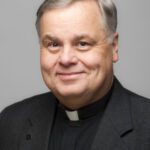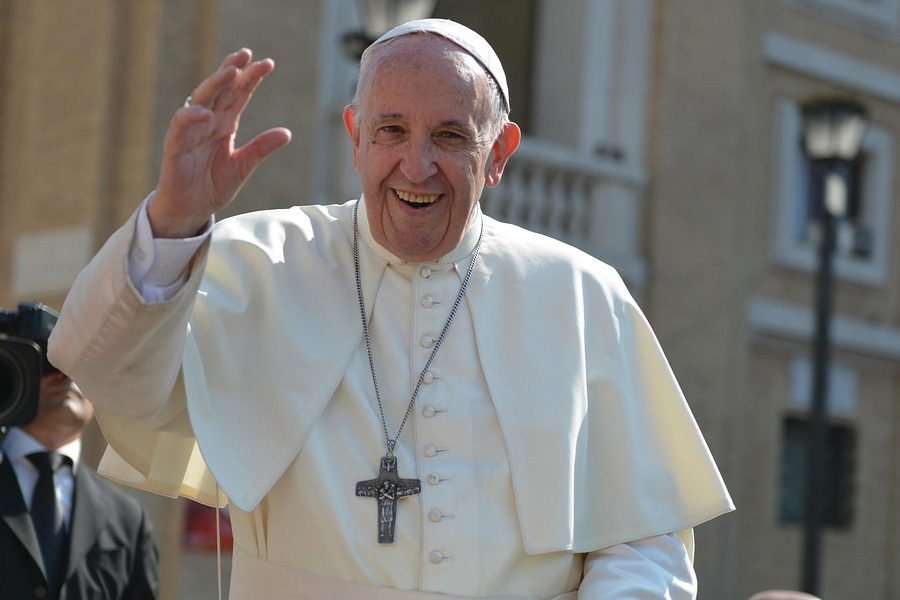For years, my friend Father Rafael lived at a missionary institute in England. Amongst his other responsibilities, he was in charge of finances. Some renovations at the institute uncovered a dilapidated Victorian fireplace. The chimney was in terrible condition: well on it’s way to crumbling into dust. So, Father Raf asked the local government authority for permission to pull it down. The inspector pointed out to him, that since the institute stood on a hill overlooking part of London, that Victorian chimney was visible to a million people. It was a feature on their horizon. Therefore, no matter how much the repairs cost, the chimney had to stay.
I couldn’t help but wonder how many of those one million people had ever actually noticed Father Raf’s chimney. Was there someone who looked up each day and thought, “Ah, there it is, my favorite chimney – the chimney that invests my life with beauty, stability, and purpose. No matter how much everything else changes around me, as long as I can look up and see that chimney, my life has meaning.” At the very least, if the chimney had disappeared, would any single person have come home in the evening and thought, “Something isn’t right. I’ve felt uncomfortable all day. I can’t put my finger on it, but something’s different, something’s definitely changed.”
As Christians, we try to keep God at least as prominent on our mental and spiritual horizons, as Father Raf’s chimney was on the horizon of Londoners. And, indeed, our reading from Isaiah assures us that the day will come when “The mountain of the Lord’s house shall be established as the highest mountain, and raised above the hills.” Then it will be easy for everyone to keep our Lord in view, so that God will be the decisive factor in the way we make our choices and the way we live our lives. But in the meantime we have to make an effort to keep God in view. After I had lived in Cambridge, England for a number of years, and thought I knew the place backwards and forwards, I happened upon a tourist guidebook called, Look Up In Cambridge. The premise of the book was that if you would simply look up as you walked through the city you would see a whole world of things you had never noticed before. I took the author’s advice and was amazed at the number of interesting things I’d been missing.
It reminded me of riding in the back seat of the family car as a child in the days before seatbelts and booster seats. While we were driving home I would sometimes stretch out on my back and watch the world go past the windows from an unaccustomed angle. All I could see were upper stories, rooflines, the tops of trees, and phone lines. It was all very unfamiliar to me. And then the car would come to a stop, and I’d sit up and find that we were suddenly home. It felt like magic.
Perhaps during Advent each of us can make a point of looking up from the lives we think we know backwards and forwards. By the special grace of this holy season we might be amazed to see for the first time new ways that God’s Kingdom is preparing to break out into our world. The disastrous alternative to keeping God in view is described by Jesus in our Gospel. He tells of the people of Noah’s time who were oblivious to God, “right up to the day Noah entered the ark. They were totally unconcerned” until the waters actually began to rise. The warning seems particularly apt as we Portlanders enter into our rainy season.
Advent is the season of the liturgical year when we scan our horizon for God, so that we will be ready when our Savior comes. On this campus we know that a great snowcapped mountain can be looming on the horizon, but until the clouds clear, it’s invisible. It might as well not be there at all. From the look of our weather lately, those particular clouds seem unlikely to clear any time soon. It needn’t be that way with God’s mountain. So, inspired and emboldened by this holy season, let’s stand up straight and raise our heads, in confident expectation of greeting Our Lord who is near at hand.
Rev. Charles B. Gordon, C.S.C., is co-director of the Garaventa Center for Catholic Intellectual Life and American Culture at the University of Portland. He writes and records a regular blog called “Fractio Verbi.”





